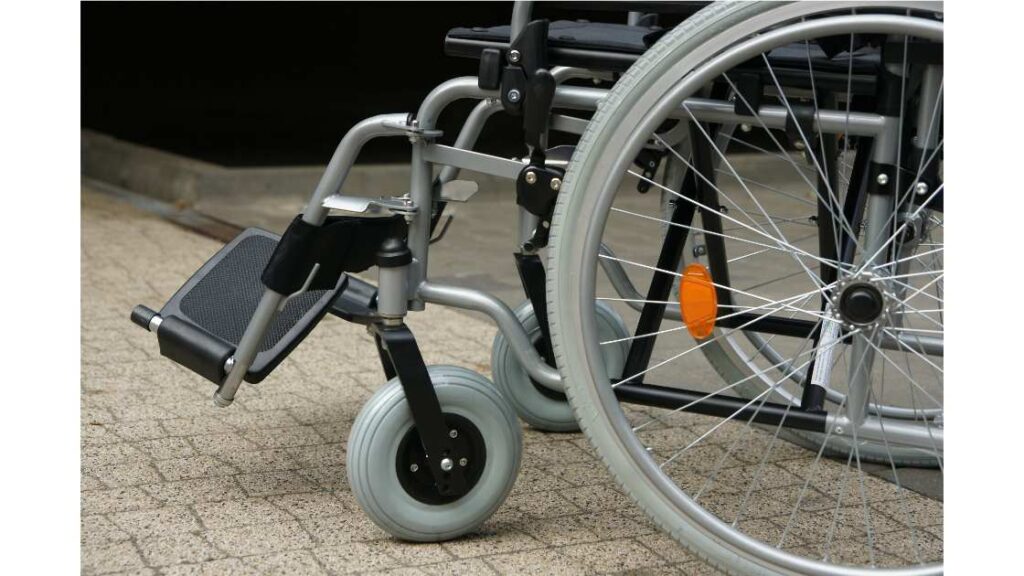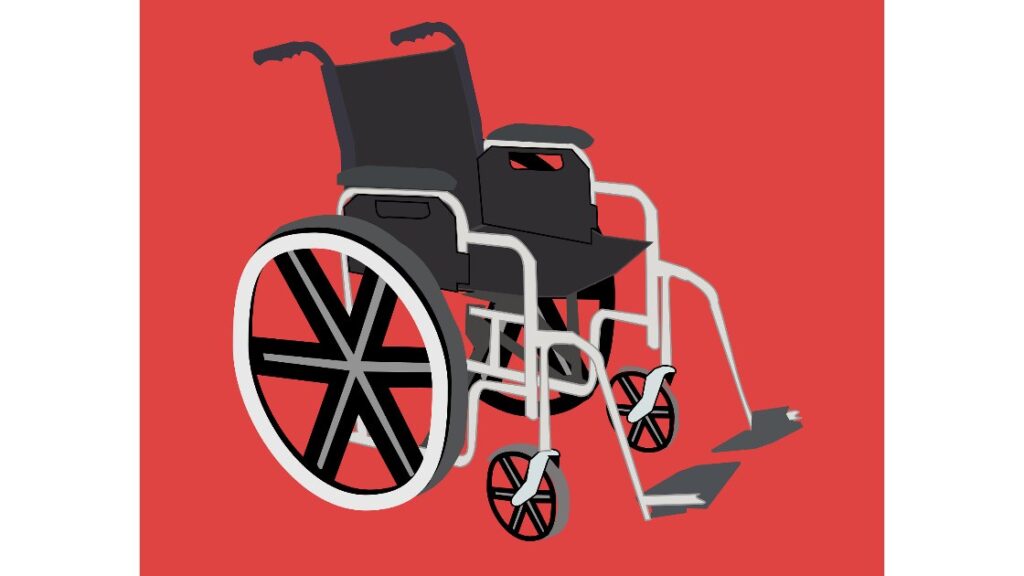
Are you or a loved one in need of a wheelchair? Finding the perfect one can be overwhelming with so many options on the market. Don't worry, we've got you included! In this comprehensive review and comparison, we'll guide you through the process of buying the perfect wheelchair.
Whether you're looking for a lightweight wheelchair for easy portability or a power wheelchair with advanced features, we'll provide you with all the information you need to make an informed decision. Our team of experts has done the research and compiled a list of the top wheelchair brands, comparing their features, pricing, and user reviews to help you choose the right one for you.
We understand that everyone's needs are unique, which is why we've included a wide range of wheelchairs in our review. From manual to electric, sports to pediatric, we've got you included. So, sit back, relax, and let us walk you through the ultimate guide to buying the perfect wheelchair. Your mobility and comfort are our top priority, and with our guide, you can make a decision with confidence.
Table of Contents
Understanding the different types of wheelchairs
When it comes to choosing a wheelchair, it's important to understand the different types available. Each type has its own unique features and benefits that cater to specific needs. Let's take a closer look at the most common types of wheelchairs:
1. Manual Wheelchairs: Manual wheelchairs are self-propelled and require the user to move the wheels using their arms. These wheelchairs are lightweight and easy to maneuver, making them ideal for individuals with good upper body strength.
2. Electric Wheelchairs: Electric wheelchairs, also known as power wheelchairs, are battery-powered and controlled using a joystick or control panel. These wheelchairs are perfect for individuals who may have limited arm strength or mobility.
3. Sports Wheelchairs: Sports wheelchairs are specifically designed for athletes and individuals who participate in sports such as basketball, tennis, or rugby. These wheelchairs are lightweight, durable, and have features that enhance performance on the court or field.
4. Pediatric Wheelchairs: Pediatric wheelchairs are designed for children and come in various sizes and styles. These wheelchairs are adjustable, ensuring optimal comfort and support for growing children.
5. Transport Wheelchairs: Transport wheelchairs are designed for short-term use and are lightweight and easy to fold. These wheelchairs are ideal for individuals who require assistance with mobility for outings or medical appointments.
Now that you have a better understanding of the different types of wheelchairs available, let's move on to the next section.
Factors to consider when buying a wheelchair
When purchasing a wheelchair, it's essential to consider several factors to ensure you select the right one for your needs. Let's discuss some of the key factors to keep in mind during the buying process:
1. Mobility needs: Assess your mobility needs and determine whether a manual or electric wheelchair would be more suitable. Consider factors such as your ability to self-propel, the terrain you'll be navigating, and any specific medical conditions that may affect your mobility.
2. Comfort and support: Comfort and support are crucial when selecting a wheelchair. Look for features such as adjustable seats, backrests, and armrests to ensure optimal comfort and proper body alignment.
3. Weight capacity: Consider the weight capacity of the wheelchair to ensure it can safely support your body weight. It's important to choose a wheelchair that can accommodate your weight without compromising safety or performance.
4. Portability and storage: If you require a wheelchair that is easy to transport and store, consider the weight and folding mechanism of the wheelchair. Lightweight and foldable wheelchairs are ideal for individuals who frequently travel or have limited storage space.
5. Durability and maintenance: Wheelchairs should be durable and low-maintenance. Look for wheelchairs made from high-quality materials that can withstand daily use without excessive wear and tear. Additionally, consider the availability and cost of replacement parts and accessories.
Now that you're aware of the essential factors to consider, let's move on to the next section to learn about wheelchair sizing and fit.
Wheelchair sizing and fit
Proper sizing and fit are crucial for comfort, stability, and overall functionality of a wheelchair. Here are some key considerations when it comes to wheelchair sizing and fit:
1. Seat width and depth: The seat width and depth should be suitable for your body size and proportions. Measure the width of your hips and the length of your upper legs to determine the correct seat dimensions.
2. Seat height: The seat height should allow your feet to comfortably rest on the ground or footrests, depending on your preference. Ensure that your knees are at a 90-degree angle when seated.
3. Backrest height: The backrest height should provide adequate support for your back. It's essential to choose a wheelchair with a backrest height that aligns with the natural curve of your spine.
4. Armrest height: The armrest height should allow your arms to rest comfortably while maintaining proper posture. Ensure that your shoulders are relaxed and not elevated when your arms are resting on the armrests.
5. Leg rest length: If you require leg rests, ensure that they are adjustable to accommodate the length of your legs. The leg rests should provide support and promote proper circulation. Remember, proper sizing and fit are essential to prevent discomfort, pressure sores, and other potential health issues. Now that you understand the importance of sizing and fit, let's move on to the next section to explore the pros and cons of manual and electric wheelchairs.

Manual vs. electric wheelchairs: Pros and cons
When choosing between a manual and an electric wheelchair, it's important to consider the pros and cons of each type. Let's take a closer look at the advantages and disadvantages of manual and electric wheelchairs:
Manual Wheelchairs:
Pros:
- Lightweight and portable, making them easy to transport and store.
- No dependency on batteries or charging, ensuring continuous use.
- Cost-effective compared to electric wheelchairs.
Cons:
- Requires upper body strength and mobility to self-propel.
- Limited speed and distance compared to electric wheelchairs.
- May require assistance on uneven terrains or inclines.
Electric Wheelchairs:
Pros:
- Ideal for individuals with limited upper body strength or mobility.
- Easy to maneuver and control with a joystick or control panel.
- Can navigate various terrains and inclines with ease.
Cons:
- Heavier and bulkier than manual wheelchairs, making them less portable.
- Dependency on batteries and charging, requiring regular maintenance.
- Higher cost compared to manual wheelchairs.
Consider your specific needs, mobility requirements, and lifestyle when deciding between a manual or electric wheelchair. Now that you've explored the pros and cons, let's move on to the next section to discover the features and accessories to look for in a wheelchair.
Features and accessories to look for in a wheelchair
When buying a wheelchair, it's essential to choose one that meets your specific needs and preferences. Here are some key features and accessories to look for:
1. Wheelchair Frame Material: The material of the wheelchair frame determines its durability, weight, and performance. Common materials include aluminum, steel, and titanium.
2. Seat Cushion: A comfortable seat cushion is crucial for pressure relief and overall comfort. Look for cushions that provide adequate support and are made from high-quality foam or gel materials.
3. Armrests and Leg Rests: Adjustable armrests and leg rests allow for customization and optimal comfort. Look for features such as height-adjustable armrests and swing-away leg rests.
4. Wheel Type: The type of wheels affects maneuverability and performance. Choose between solid, pneumatic, or foam-filled tires depending on the terrain you'll be navigating.
5. Brakes: Proper braking systems are essential for safety and control. Look for wheelchairs with easy-to-use brakes that provide stability and prevent accidental rolling.
6. Storage Pockets and Accessories: Additional features such as storage pockets, cup holders, and trays can enhance convenience and accessibility. Now that you're aware of the key features and accessories to consider, let's move on to the next section to explore popular wheelchair brands and their reputations.
Wheelchair brands and their reputations
When it comes to purchasing a wheelchair, choosing a reputable brand is essential. Here are some popular wheelchair brands known for their quality, innovation, and customer satisfaction:
1. Invacare: Invacare is a well-known brand that offers a wide range of manual and electric wheelchairs. They are known for their durability and user-friendly designs.
2. Drive Medical: Drive Medical is another reputable brand that offers a variety of wheelchairs for different needs. They are known for their affordability and quality craftsmanship.
3. Sunrise Medical: Sunrise Medical is a global leader in mobility products and offers a range of manual and electric wheelchairs. They are known for their innovative designs and user-centric approach.
5. Karma Mobility: Karma Mobility is a reputable brand that focuses on lightweight and compact wheelchairs. They prioritize portability and user convenience. Remember to research and read customer reviews to get a better understanding of the reputation and reliability of each brand. Now that you're familiar with some popular wheelchair brands, let's move on to the next section to compare wheelchair prices and budget considerations.
Comparing wheelchair prices and budget considerations
Wheelchair prices can vary significantly depending on the type, brand, features, and accessories. It's important to set a budget and consider the following factors when comparing prices:
1. Type of wheelchair: Manual wheelchairs are generally more affordable than electric wheelchairs due to their simpler design and lack of electrical components.
2. Features and accessories: Wheelchairs with advanced features and accessories tend to be more expensive. Consider which features are essential for your needs and prioritize accordingly.
3. Brand reputation: Established brands with a strong reputation may have higher price points compared to lesser-known brands.
4. Insurance coverage: If you have health insurance, check if it covers the cost of a wheelchair. Some insurance plans may partially or fully cover the expenses.
5. Long-term cost: Consider the long-term cost of owning a wheelchair, including maintenance, replacement parts, and repairs. It's important to strike a balance between your budget and the features and quality you require in a wheelchair. Now that you have a better understanding of wheelchair prices and budget considerations, let's move on to the next section to explore where to buy a wheelchair.

Where to buy a wheelchair: Online vs. physical stores
When it comes to purchasing a wheelchair, you have the option to buy from online retailers or physical stores. Both options have their advantages and considerations. Let's take a closer look:
Online Retailers:
Pros:
- Wide variety of options and brands to choose from.
- Convenience of shopping from home and comparing prices.
- Access to customer reviews and ratings.
Cons:
- Inability to try out the wheelchair before purchasing.
- Potential shipping delays or issues.
- Limited or no in-person customer support.
Physical Stores:
Pros:
- Ability to test out and try different wheelchairs for proper fit and comfort.
- Personalized assistance and guidance from knowledgeable staff.
- Immediate access to customer support and assistance.
Cons:
- Limited variety compared to online retailers.
- Potential travel inconvenience.
- Higher possibility of paying higher prices.
Consider your personal preferences, accessibility, and need for in-person assistance when deciding between online retailers and physical stores. Now that you're aware of the pros and cons, let's move on to the next section to explore wheelchair reviews and customer testimonials.
Wheelchair reviews and customer testimonials
Reading reviews and customer testimonials can provide valuable insights into the performance, durability, and overall satisfaction of a wheelchair. Here are some platforms to find wheelchair reviews:
1. Online Retailer Websites: Many online retailers allow customers to leave reviews and ratings for the products they purchase. Read through these reviews to get an idea of the wheelchair's performance and reliability.
2. Manufacturer Websites: Visit the official websites of wheelchair manufacturers to find customer testimonials and reviews. Manufacturers often highlight positive feedback from satisfied customers.
3. Independent Review Websites: Look for independent review websites that specialize in medical equipment and mobility aids. These websites provide unbiased reviews and comparisons of different wheelchair brands and models.
Pay attention to common themes in the reviews and consider how they align with your specific needs and expectations. Now that you know how to access wheelchair reviews, let's move on to the conclusion of our ultimate guide.
Conclusion: Finding the perfect wheelchair for your needs
Choosing the perfect wheelchair is a personal and important decision that requires careful consideration. By understanding the different types of wheelchairs, considering the factors that matter to you, and exploring the various features and accessories available, you can make an informed choice.
Remember to prioritize comfort, support, and durability when selecting a wheelchair. Consider reputable brands with positive customer reviews and compare prices to find the best option within your budget. Whether you choose to buy from online retailers or physical stores, ensure you have access to reliable customer support.
With the knowledge and guidance provided in this ultimate guide, you're now equipped to find the perfect wheelchair that meets your mobility needs and enhances your overall quality of life. Don't let mobility limitations hold you back – take control of your independence with the perfect wheelchair.

